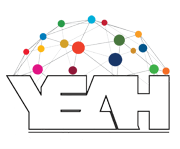
Subscribe to RSS Feed (Opens in New Window)
| 2021 | ||
|---|---|---|
| Wednesday, April 21st | ||
| 1:05 PM |
Karla Elizabeth, Universidad Peruana de Ciencias Aplicadas 1:05 PM - 1:01 PM In the Peruvian capital, hydroelectric and thermoelectric plants provide the highest percentage of electricity and fossil fuels are almost the only source of the vehicle fleet, configuring an impure and diversified energy matrix. The viability of electricity generation is analyzed with the installation of piezoelectric tiles to meet its energy demand in a “Metropolitano” station with alarge influx. The walk of 20 million people produces approximately 180 kWh / h generating 30% savings in electricity costs, in addition to the environmental benefits related to the reduction of GHG and social benefits of a more efficient and healthy system. |
|
| 1:15 PM |
Session 2A Conservation and Preservation of the African Wild Donkey in Eritrea Natalie McManus, Colorado State University 1:15 PM - 1:24 PM Eritrea is dedicated to fighting the climate crisis and protecting their country. One way to monitor its progress is by looking at the ecological indicator of the African Wild Donkey. As Eritrea implements regulation, policy, and actions, the population of the African Wild Ass will reflect their success. Many of these actions will impact the land use and land cover change of Eritrea, as well as their journey to achieve the sustainable development goals. In the connections between the sustainable development goals and the African Wild Donkey, the ideas of conservation, sustainability, and equity are essential and need necessary consideration. |
|
| 1:25 PM |
Session 2A A Walk Through the Shared Socioeconomic Pathways Julia Perbohner, Colorado State University 1:25 PM - 1:34 PM Science communication stands increasingly important in a world that feels the growing effects of climate change. The Shared Socioeconomic Pathways are five different human behavior predictions to climate change that have only been communicated through scientific papers. This comic aims to communicate these scenarios without the barriers that scientific papers often hold.The scenarios range from Fossil Fuel Development, to Inequality, to Sustainability. Drawn with inspiration from artist Roy Lichtenstein, they illustrate these scenarios in simplified yet graphic depictions. The 5 scenarios are important to understand in order to navigate these next couple of pivotal years with social, economic, and environmental sound. |
|
| 1:35 PM |
Session 2A Biodegradable Plastics Chloe Strach, Michigan Technological University 1:35 PM - 1:44 PM The problem we are facing is the waste produced bythe modern lifestyle. Plastics, specificallysingle-use plastics are prolific in our day to daylives. Taking thousands of years to decompose,filling up space in landfills, and producing methanegas, plastic waste is an obstruction tosustainability economically, socially, and environmentally.This presentation will focus on thesustainability of biodegradable plastics, such aswater bottles, plastic cutlery, etc. We will alsodiscuss how the triple bottom line pertains to biodegradableplastics. |
|
| 1:45 PM |
Session 2A Impact Investing in China: Making sustainable money Maximilian Kamp, Peking University 1:45 PM - 1:54 PM Over the past decade, investing in sustainability has become more established all over the world,even on Wall Street where the only concern seemed to be a high ROI. Recently, this trend also has gained a foothold in China which has traditionally preferred economic growth over environmental and social impact. However, there are still misconceptions existing about sustainable funds. We discuss the requirements needed to set up an environmental, social and governance fund (ESG) in China. Based on real life examples we show that financial return and making the world a better place aren’t necessarily mutually exclusive. |
|

